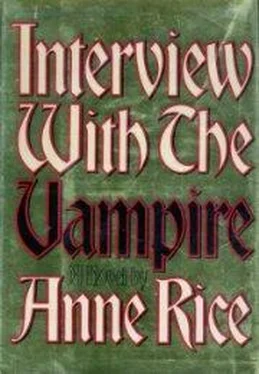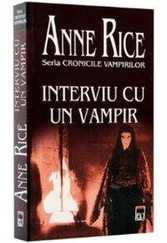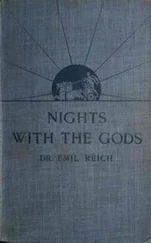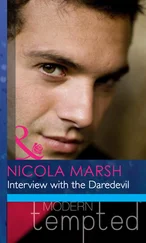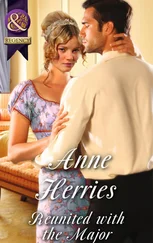Anne Rice - Interview with the Vampire
Здесь есть возможность читать онлайн «Anne Rice - Interview with the Vampire» весь текст электронной книги совершенно бесплатно (целиком полную версию без сокращений). В некоторых случаях можно слушать аудио, скачать через торрент в формате fb2 и присутствует краткое содержание. Год выпуска: 1976, ISBN: 1976, Издательство: Alfred A. Knopf, Жанр: Ужасы и Мистика, на английском языке. Описание произведения, (предисловие) а так же отзывы посетителей доступны на портале библиотеки ЛибКат.
- Название:Interview with the Vampire
- Автор:
- Издательство:Alfred A. Knopf
- Жанр:
- Год:1976
- ISBN:0394498216
- Рейтинг книги:5 / 5. Голосов: 1
-
Избранное:Добавить в избранное
- Отзывы:
-
Ваша оценка:
- 100
- 1
- 2
- 3
- 4
- 5
Interview with the Vampire: краткое содержание, описание и аннотация
Предлагаем к чтению аннотацию, описание, краткое содержание или предисловие (зависит от того, что написал сам автор книги «Interview with the Vampire»). Если вы не нашли необходимую информацию о книге — напишите в комментариях, мы постараемся отыскать её.
Interview with the Vampire — читать онлайн бесплатно полную книгу (весь текст) целиком
Ниже представлен текст книги, разбитый по страницам. Система сохранения места последней прочитанной страницы, позволяет с удобством читать онлайн бесплатно книгу «Interview with the Vampire», без необходимости каждый раз заново искать на чём Вы остановились. Поставьте закладку, и сможете в любой момент перейти на страницу, на которой закончили чтение.
Интервал:
Закладка:
“Of course, I know you wonder what happened to us afterwards. What became of Armand? Where did I go? What did I do? But I tell you nothing really happened. Nothing that wasn’t merely inevitable. And my journey through the Louvre that last night I’ve described to you, that was merely prophetic.
“I never changed after that. I sought for nothing in the one great source of change which is humanity. And even in my love and absorption with the beauty of the world, I sought to learn nothing that could be given back to humanity. I drank of the beauty of the world as a vampire drinks. I was satisfied. I was filled to the brim. But I was dead. And I was changeless. The story ended in Paris, as I’ve said.
“For a long time I thought that Claudia’s death had been the cause of the end of things. That if I had seen Madeleine and Claudia leave Paris safely, things might have been different with me and Armand. I might have loved again and desired again, and sought some semblance of mortal life which would have been rich and varied, though unnatural. But now I have come to see that was false. Even if Claudia had not died, even if I had not despised Armand for letting her die, it would have all turned out the same. Coming slowly to know his evil, or being catapulted into it… was all the same. I wanted none of it finally. And, deserving nothing better, I closed up like a spider in the flame of a match. And even Armand who was my constant companion, and my only companion, existed at a great distance from me, beyond that veil which separated me from all living things, a veil which was a form of shroud.
“But I know you are eager to hear what became of Armand. And the night is almost ended. I want to tell you this because it is very important. The story is incomplete without it.
“We traveled the world after we left Paris, as I’ve told you; first Egypt, then Greece, then Italy, Asia Minor — wherever I chose to lead us, really, and wherever my pursuit of art led me. Time ceased to exist on any meaningful basis during these years, and I was often absorbed in very simple things — a painting in a museum, a cathedral window, one single beautiful statue — for long periods of time.
“But all during these years I had a vague but persistent desire to return to New Orleans. I never forgot New Orleans. And when we were in tropical places and places of those flowers and trees that grow in Louisiana, I would think of it acutely and I would feel for my home the only glimmer of desire I felt for anything outside my endless pursuit of art. And, from time to time, Armand would ask me to take him there. And I, being aware in a gentlemanly manner that I did little to please him and often went for long periods without really speaking to him or seeking him out, wanted to do this because he asked me. It seemed his asking caused me to forget some vague fear that I might feel pain in New Orleans, that I might experience again the pale shadow of my former unhappiness and longing. But I put it off. Perhaps the fear was stronger than I knew. We came to America and lived in New York for a long time. I continued to put it off. Then, finally, Armand urged me in another way. He told me something he’d concealed from me since the time we were in Paris.
“Lestat had not died in the Theatre des Vampires. I had believed him to be dead, and when I asked Armand about those vampires, he told me they all had perished. But he told me now that this wasn’t so. Lestat had left the theater the night I had run away from Armand and sought out the cemetery in Montmartre. Two vampires who had been made with Lestat by the same master had assisted him in booking passage to New Orleans.
“I cannot convey to you the feeling that came over me when I heard this. Of course, Armand told me he had protected me from this knowledge, hoping that I would not undertake a long journey merely for revenge, a journey that would have caused me pain and grief at the time. But I didn’t really care. I hadn’t thought of Lestat at all the night I’d torched the theater. I’d thought of Santiago and Celeste and the others who had destroyed Claudia. Lestat, in fact, had aroused in me feelings which I hadn’t wished to confide in anyone, feelings I’d wished to forget, despite Claudia’s death. Hatred had not been one of them.
“But when I heard this now from Armand it was as if the veil that protected me were thin and transparent, and though it still hung between me and the world of feeling, I perceived through it Lestat, and that I wanted to see him again. And with that spurring me on, we returned to New Orleans.
“It was late spring of this year. And as soon as I emerged from the railway station, I knew that I had indeed come home. It was as if the very air were perfumed and peculiar there, and I felt an extraordinary ease walking on those warm, flat pavements, under those familiar oaks, and listening to the ceaseless vibrant living sounds of the night.
“Of course, New Orleans was changed. But far from lamenting those changes, I was grateful for what seemed still the same. I could find in the uptown Garden District, which had been in my time the Faubourg St. Marie, one of the stately old mansions that dated back to those times, so removed from the quiet brick street that, walking out in the moonlight under its magnolia trees, I knew the same sweetness and peace I’d known in the old days; not only in the dark, narrow streets of the Vieux Carre but in the wilderness of Pointe du Lac. There were the honeysuckle and the roses, and the glimpse of Corinthian columns against the stars; and outside the gate were dreamy streets, other mansions… it was a citadel of grace.
“In the Rue Royale, where I took Armand past tourists and antique shops and the bright-lit entrances of fashionable restaurants, I was astonished to discover the town house where Lestat and Claudia and I had made our home, the facade little changed by fresh plaster and whatever repairs had been done within. Its two French windows still opened onto the small balconies over the shop below, and I could see in the soft brilliance of the electric chandeliers an elegant wallpaper that would not have been unfamiliar in those days before the war. I had a strong sense of Lestat there, more of a sense of him than of Claudia, and I felt certain, though he was nowhere near this town house, that I’d find him in New Orleans.
“And I felt something else; it was a sadness that came over me then, after Armand had gone on his way. But this sadness was not painful, nor was it passionate. It was something rich, however, and almost sweet, like the fragrance of the jasmine and the roses that crowded the old courtyard garden which I saw through the iron gates. And this sadness gave a subtle satisfaction and held me a long time in that spot; and it held me to the city; and it didn’t really leave me that night when I went away.
“I wonder now what might have come of this sadness, what it might have engendered in me that could have become stronger than itself. But I jump ahead of my story.
“Because shortly after that I saw a vampire in New Orleans, a sleek white-faced young man walking alone on the broad sidewalks of St. Charles Avenue in the early hours before dawn. And I was at once convinced that if Lestat still lived here that vampire might know him and might even lead me to him. Of course, the vampire didn’t see me. I had long ago learned to spot my own kind in large cities without their having a chance to see me. Armand, in his brief visits with vampires in London and Rome, had learned that the burning of the Theatre des Vampires was known throughout the world, and that both of us were considered outcasts. Battles over this meant nothing to me, and I have avoided them to this day. But I began to watch for this vampire in New Orleans and to follow him, though often he led me merely to theaters or other pastimes in which I had no interest. But one night, finally, things changed.
Читать дальшеИнтервал:
Закладка:
Похожие книги на «Interview with the Vampire»
Представляем Вашему вниманию похожие книги на «Interview with the Vampire» списком для выбора. Мы отобрали схожую по названию и смыслу литературу в надежде предоставить читателям больше вариантов отыскать новые, интересные, ещё непрочитанные произведения.
Обсуждение, отзывы о книге «Interview with the Vampire» и просто собственные мнения читателей. Оставьте ваши комментарии, напишите, что Вы думаете о произведении, его смысле или главных героях. Укажите что конкретно понравилось, а что нет, и почему Вы так считаете.
